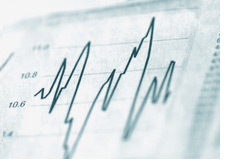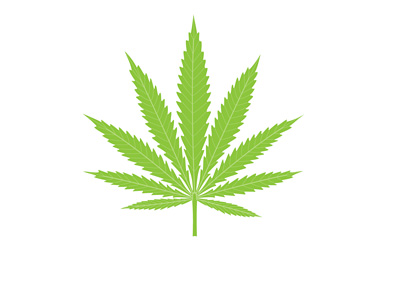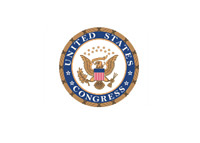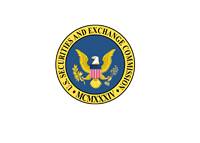The Top Ten Most Outrageous Stock Market Scams of all Time
 Scams occur in the stock market every day. Stock market scandals are woven into the fabric of our culture.
Scams occur in the stock market every day. Stock market scandals are woven into the fabric of our culture.However, these are the TRULY outrageous stock market scams. The scams that when you hear about them, you say to yourself "How did they ever think that they would get away with this?"
Here is my top ten list, starting from the least outrageous (but still outrageous) -
10. Anthony Elgindy and the corrupt FBI agent. Here is a guy who built up a large following in the late 90's by exposing overvalued stocks and then subsequently short-selling them for profit. He had a corrupt FBI agent on his payroll, Jeffrey Royer, who would log into government databases using his credentials and try to dig up confidential information that they could use to manipulate the stock market. For instance, if the CEO of a company had a criminal investigation against him ongoing, they would short the stock (bet that it would fall) and then disseminate the confidential information in order to create weakness in the stock. Elgindy would also inform the companies that he possessed this information, and then try to extort funds from them in exchange for not releasing the info. Eventually the FBI caught on to their scheme and Elgindy ended up receiving 11 years in jail, where he still is today.
9. Stock Exchange Hoax of 1814. One of the first instances of stock market manipulation. On February 21, 1814, a man in a British military uniform showed up in an inn on the coast of the English channel and pronounced that Napoleon had been killed and the Napoleonic Wars were now over. Word spread quickly and people celebrated by driving up the price of stocks on the London Stock Exchange. The only problem was that the news was soon discovered to be a hoax, and it was also revealed that someone had engaged in a plot to profit from this erroneous news. Lord Thomas Cochrane was eventually fingered as the culprit, but he was later pardoned by the King after it was determined that he was not involved. The true culprit was never found.
8. ZZZZ Best Inc. Meet Barry Minkow. You may think that he's just a normal, ordinary 16 year old but he's not. He actually runs a carpet cleaning company called "ZZZZ Best Inc." out of his garage. This "company" grew to a company with over 1400 employees who specialized in insurance restoration cleaning. The company was winning "big" contracts (from Mob families) and Barry was driving a Ferrari and living in a mansion. Life was good. In 1986, the company went public and temporarily had a market value of over $200 million, valuing Minkow personally at over $100 million dollars. Not bad for a teenager! However, the company was nothing more than a huge hoax. The company was simply a massive Ponzi scheme, raising money from new investors to pay off old ones. Thousands upon thousands of documents were forged to maintain the appearance of a thriving business. The company borrowed fake offices to maintain their image. Company officers were embezzling funds. The company tried issuing fake press releases to stave off worried investors. The company quickly collapsed, and Minkow and eleven others were indicted on 54 different counts of fraud. Minkow was sentenced to 25 years in prison, but served 7 1/2. He has now turned to God and is deeply religious.
7. Bre-X. Was, at one time, a company with a total capitalization of over $6 billion dollars. Was apparently sitting on the largest gold deposit in the world at their Busang site in Indonesia. Bought the Busang plot of land in 1993, and in 1995 announced that they had discovered significant amounts of gold. Bre-X's independent consulting company, Kilborn Engineering, estimated that there were 70 million ounces of gold in the Busang deposit. Others speculated that it might be as much as 200 million ounces. As you may guess, the entire thing turned out to be a massive fraud. Bre-X had "salted" the samples by placing shavings from gold jewelry in with the core samples to maintain the allusion of a massive gold deposit. The stock collapsed and went into bankruptcy, sparking many lawsuits and books written about the topic. The Bre-X story resembles a Hollywood movie; dead geologists who might not really be dead, corrupt governments and disgraced company officials in exile.
6. Nick Leeson. The man who single-handedly brought down Barings Bank, the UK's oldest investment bank (at the time). Used an "error account" to hide his trading losses. If a trade went well, he made sure that everyone knew about it; if the trade went poorly, he would hide it in this "error account" that was marked "88888." The error accounts losses reached 200 million pounds, and Leeson engaged in increasingly speculative trades to try and gain the money back. The end came when an earthquake in Japan sent the value of one of Leeson's positions tumbling, resulting in a total loss for Barings of over 800 million pounds, including all of Leeson's previous losses. Leeson fled and was eventually captured, and the company was declared insolvent. The company's lack of rules and regulations when it came to their star trader eventually led to their downfall.
5. Recruit Scandal. A massive scandal in Japan. The chairman of Recruit, Hiromasa Ezoe, offered shares in a Recruit subsidiary named Recruit Cosmos to many different prominent politicians including the Prime Minister, former Prime Minister and Chief Cabinet Secretary. The chairman of NTT was also involved. Basically, Ezoe offered unlisted shares of Recruit Cosmos at bargain basement prices to politicians, business leaders and journalists in an attempt to curry favor. The shares eventually went public and sky-rocketed in value. Word of these "deals" between Ezoe and the others soon leaked out, and the dominoes began to fall. The fallout was swift, with many of these politicans stepping down after being disgraced. The scandal rattled Japan and helped lead to a major slowdown of the country's economy.
4. Michael Milken. Known as the "Junk Bond King", Milken was another in our list who abused his privileges and power. Milken pioneered the use of high-yield debt (or junk bonds) to help finance corporate takeovers and corporate raids. He was more fond of enriching himself though, as he used his knowledge of forth-coming acquisitions to enrich himself and his cronies, through the purchase of warrants in companies that were about to be taken over and other beneficial self-dealings that would enrich him. Milken built up a net worth of over a billion dollars. When Ivan Boesky was taken down, he ratted out Milken and the entire house of cards came toppling down. It is said that the movie "Wall Street" is largely based upon Boesky and Milken.
3. Guinness Fraud. Speaking of Boesky, he paid dearly for his involvement in this scandal. Basically the scheme was this: inflate the price of Guinness shares by buying as many Guinness shares of they possibly could, maintain the price and then use the inflated market cap to take over Distillers, a much larger company. The "Guinness Four", Ernest Saunders, Gerald Ronson, Jack Lyons and Anthony Parnes were charged with using company money to try and artificially inflate the stock price of the company, which would allow them to take over Distillers. Guinness fronted money to various "investors", including Ivan Boesky, who would buy shares in the company and then receive a kickback for doing so. The merger was eventually completed, although the fallout was great once this insider scheme was uncovered. This scandal roiled global financial markets that were already shaky at the time.
2. Tang Wanxin. Formally one of the richest men in China, he played a major role in China's largest ever stock scandal. Tang raised over 45 billion yuan over a 4 year period without regulatory approval. Not only that, but Tang also rigged the prices of three listed companies that his company owned so that he could inflate the share prices, use the shares as collateral for loans and send more money into his company's. Many company executives were in on this scam to defraud the Chinese public. One of the biggest companies in China was taken down, one of the richest men in China fell from grace, and billions upon billions of dollars were involved. Certainly worthy of a number two spot on this list.
1. Enron. The grand-daddy of all scams. You have all of the elements. A company with incredible political connections. The seventh-largest company in the United States at the time. A darling of the stock market. Thousands of employees with their life savings tied up on the stock, and many more thousands with exposure to the stock either directly or indirectly. The multi-billion dollar company was mostly smoke and mirrors. Company officials were using shell companies to hide hundreds of millions of dollars in debt, and to inflate profits. Company officials were creating shell companies in order to enrich themselves as well through lucrative side deals. Enron truly signalled the end of the "boom era" in the United States stock market. Billions upon billions were lost. Arthur Andersen, one of the largest accounting firms in the US, shredded company documents and was eventually taken down. Congressional hearings. Whistle-blowers. Books. Movies. This one had it all, and was certainly the most outrageous stock market scam of all when you consider all of the elements involved.
Filed under: Stock Market Scandals | Stock Market Education | General Knowledge



